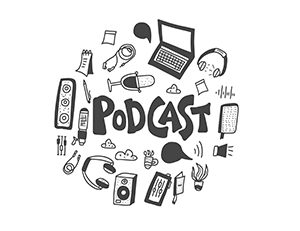07
10
.22
Halfway point – Adaptive Podcasts
Adaptive Podcasts and the Mundane Future
With over 48 million podcast episodes being published worldwide by 2021 [1], podcasts are seen as one of the “most important audio initiatives” by media publishers [2]. Podcast listeners in the UK alone have increased year-on-year, reaching an estimated 15.6 million in 2020 [3]. Over 1.3 billion podcasts were played by BBC listeners in 2021, up 25% from 2020, making podcasts a major area of media consumption and development. In collaboration with the European Broadcasting Union and partners, BBC R&D is currently developing an open-source platform that enables the production of ‘adaptive’ podcasts [4]. The platform allows broadcasters to personalize podcasts based on data implicitly provided by listener devices (e.g., their location) and is due to be released in 2023. Adaptive podcasts are based on the idea of processing personal data locally to respond to users’ privacy concerns [5]. Local data processing is a core feature of the Human Data Interaction framework [6], and key to developing trusted data-driven products. The framework puts forward 3 core principles for protecting users’ data:
- that personal data processing should be legible and understood by users;
- that users have agency and can exercise direct control over data processing insofar as they possess or control access to the data and
- that users can negotiate the uses of their data
Our Horizon project, Adaptive Podcasts looks to leverage this emergent technology by exploring the challenges to its adoption. How to make data use explicit to give listeners greater control over and trust in personalization and how to respond to the sociality of the listening experience, to enable group engagement with adaptive podcasts.
Work so far has involved consideration to the design, creation and production of the podcast and we have partnered with the Future Mundane project (involving the Universities of Lancaster and Nottingham), to deploy the adaptive podcast in a caravan, fully equipped with IoT sensors, actuators and other media interventions.
The caravan is touring the UK, having already made its presence noticeable at the Ethical Dilemma Cafe at Manchester [7], the British Science Festival at Leicester [8] and the Digital Design Weekend at the Victoria and Albert Museum, London [9]. As the caravan plans to tour with a particular focus on accessing user groups that are often hard-to-reach and hence not often best represented in mainstream research, it was a perfect opportunity for the our project to become one of the experiences deployed and studied.
References:
- https://www.podcastinsights.com/podcast-statistics
- https://www.statista.com/statistics/1119144/important-audio-initiatives-for-publishers-worldwide
- https://www.statista.com/forecasts/1147560/podcast-reach-uk
- https://www.youtube.com/watch?v=zTAryDY3YTQ&t=1s
- https://www.voicemag.uk/blog/8821/the-future-of-podcasting-is-adaptive-open-and-data-ethical
- https://www.interaction-design.org/literature/book/the-encyclopedia-of-human-computer-interaction-2nd-ed/human-data-interaction
- https://www.mozillafestival.org/en/tickets/ethical-dilemma-cafe/
- https://britishsciencefestival.org/event/edge-of-reality/
- https://www.vam.ac.uk/event/y0ykqxQmp6/edge-of-reality-unsustainability
Tags:
adaptive podcasts,
British Science Festival,
Digital Design Weekend,
Ethical Dilemma Cafe,
IoT,
media,
personal data,
personalization,
podcasts,
privacy,
sensors,
trust














